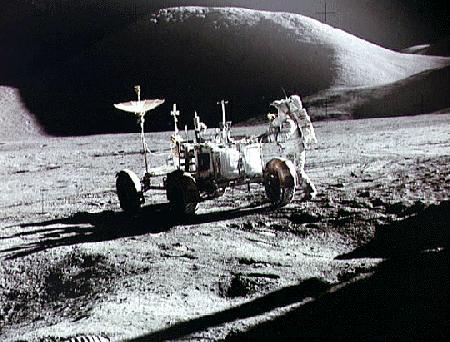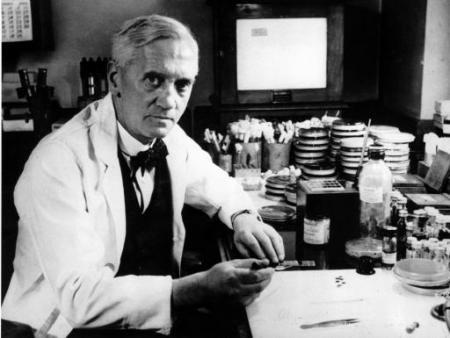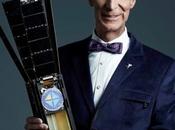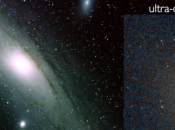
By Ricardo L. Garcia
The Apollo program gave us the Moon in less than ten years because the fundamental knowledge had been around and gathering dust since the beginning of the century, in the papers of Russian country schoolteacher Konstantin Tsiolkovsky. And because a number of brilliant technical minds attacked the problem as a team from different angles. (The twenty-odd billion dollar ticket came mainly from the work to iron out pesky technical kinks.)
Ditto for the Manhattan Project, where the basic physics research had been done long ago, and what remained was the relatively simpler technical task of putting of putting the atomic bomb together.
Does this mean we can now rush to round up all those Renaissance wizards, put them all to work on Leonardo’s plane and start pumping the money in? Well—not exactly, not yet. Allow me to introduce two of my favorite spoilsports in science and technology, Nearsightedness and Serendipity.

Alexander Fleming. Credits: http://2.bp.blogspot.com/_6ABfiBk58lc/TAvfOTC3WhI/AAAAAAAAAKo/GGbeCvxeENo/s1600/chi-ha-scoperto-la-penicillina.jpg
Alexander Fleming is justly regarded as one of the greatest figures in medicine. His discovery of the first antibiotic, penicillin, ushered in a new era when doctors could at last challenge killer diseases that had been around since the dawn of mankind.
There is, though, an often forgotten detail about the whole story—for a rather long time Fleming simply had no idea at all what it really was he had stumbled upon.
It probably had to do with the fact he had made his discovery quite by accident, when some spores of an otherwise unremarkable fungus landed on the culture he was working on at his lab. As luck would have it, Fleming dutifully noted down the effect this piece of fungus caused on his culture, and let it go at that for a time—blissfully unaware of both the Nobel Prize and the knighthood frantically pulling at his sleeve for attention from the future.
What it all boils down to is, we could have had penicillin, and then the whole new army of cousin antibiotics, way before we happened to have them, barely in time to deal with the hundreds of thousands of wounded in World War II. Only we didn’t.
Of course, Sir Alexander is not at all alone in this respect; a quite long and depressing list could be compiled of many other instances when some discovery or technological breakthrough took longer to come than strictly necessary. Tycho Brahe had all the information and the scientific genius to come up with the laws governing the motion of planets. Yet it had to be his reluctant student, Kepler, who drew the proper conclusions. Brahe simply wasn’t willing to see anything remotely doubting his notion of a fixed Earth with all else moving around it. And Kepler himself—the truth be said—wasn’t exactly quick to make his own mark in the history of science either.
There is the sad tale of the ancient Greeks missing out on their chance to start a mechanical civilization, millennia ago. And the decades-long controversy about the nature of light, until Einstein decided there was nothing wrong with accepting both models, wave and particle, and moving on from there. As somebody or other put it, it takes genius to see the obvious.
It is not enough, then, to have a bunch of scientists piecing together the basic knowledge for enough time with adequate funding. After that, somebody has to do the real work of systematizing and interpreting and understanding all that knowledge to come up with the goods.
So finally we come to Serendipity, which is better defined in layman’s terms as setting out to discover something, and instead running smack into something entirely else. Ever heard of Columbus?
From the man who tried to develop a better antifreeze and instead got the solid rocket fuel Thiokol, to the alchemists discovering the foundations of modern chemistry instead of creating gold, to Fleming and his fungus, the history of science and technology is full of bizarre cases. Indeed, we can almost guarantee that most of current research on any given field today is bound to yield some quite unexpected results. And with a bit of luck, some of the information acquired will be a breakthrough—somewhere else than the field said research was originally intended for.
And now, I think, we can go back to our initial question: Can we spend the money on something else? Well, yes—and no, and maybe, and depends.
No problem is really pressing unless, and until, society decides it is pressing. Our priorities change with the circumstances, and with the results achieved along the way. Cancer was a quiet and unremarkable killer until deadlier diseases—think smallpox or yellow fever—were conquered. It was then it got our attention. Ditto for Alzheimer’s disease. Slavery itself, sadly enough, was not considered a pressing problem until society as a whole rightly decided it was an abomination. Public schooling was never an issue until society determined it was in the public interest to put it forward. And then there’s the matter of allocating resources. Who’s to decide what’s more pressing, learning if there are other intelligences out there in the universe, or saving the mountain gorillas or preserving the ruins of Angkor Vat?
This, in ultimate analysis, is what counts. If and when society decides something is urgent or important to have, if and when we can coax enough brilliant minds to work on the problem for enough time, with enough funding, then maybe we can get the work done. (We can still do nothing about common cold…) That is, of course, if Serendipity and Nearsightedness don’t decree otherwise. But by then, probably, we’ll have an entirely new set of priorities lined up and competing for attention….Which is the nature of the beast.
The space effort began as a skirmish in the Cold War, when it was felt that it was terribly important to reach a Moon that, after all, had been up there in the sky for millions of years without bothering anybody. Along the way we unexpectedly came upon remote-sensing technology to detect and monitor earth resources, and communications satellites, and pacemakers, and Teflon, and quartz watches, and cochlear implants. Good luck with arguing that was a waste of good public money….
Similarly, a huge funding for the exploration project of an obscure Genoese sailor did not bring us a new route to the Indies—but instead potato, modern pizza (via tomato), jazz, the Bill Of Rights, and the Moon landings. It is entirely conceivable the money could have been spent differently, yes. But who’s to argue with the final results?
Ricardo L. Garcia

Ringraziamo Ricardo L. Garcia per la sua gentile collaborazione.







